Inception Ending: Is It All Just A Dream?
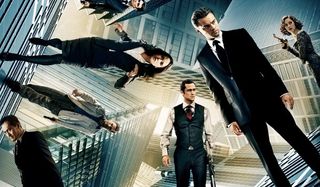
At this year's Tribeca Film Festival, Christopher Nolan was asked "the question" yet again. The question that he's danced around ever since 2010's release of Inception debuted its infamous ending: is the top still spinning?
While Nolan probably is tired of us asking about Inception, and will pretty much never give the public the full answer it wants, we'd like to attempt to answer on his behalf. Using the film itself, as well as the text of the shooting script, we're going to try and give a definitive answer to the long-standing question about whether the whole movie is a dream or not. Prepare to go deeper, as we delve into the secrets of Inception.
Obviously, this feature will reveal plenty of spoilers regarding Inception, so stop reading now if you haven't yet seen the film.
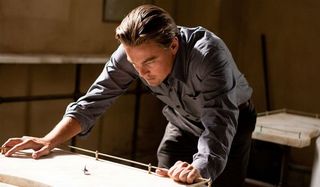
Here's What The Script Actually Says
The top, in Inception, represents Leonardo DiCaprio's totem -- the object he uses to tell if he's still in a dream state, or back in reality. Basically, if the top keeps spinning, Leo's character is still dreaming. If it falls, he is awake.
Reading Christopher Nolan's shooting script for Inception is enlightening in the respect that there's a ton of dialogue that didn't make it into the final cut of the film. That includes the scene that is most referenced by fans who believe the entire film is all a dream: the encounter between DiCaprio's Cobb and Michael Caine's Professor Miles.
Pages 25-28 in the Inception shooting script (which you can purchase here) feature the scene in question, which finds Cobb looking for a new architect, in hopes of designing a dream that his subconscious can't sabotage. This leads him to his mentor and ex-father in law, the Professor (Caine), who pleas for Cobb to abandon this work and "come back to reality."
Preceding this conversation is Cobb's insistence that his one last job would "free him" from the guilt and criminal charges surrounding his wife's suicide, which has messed with his subconscious to the point where he sees his deceased wife (aptly named Mal) sabotaging any dream he creates. Professor Miles, on the other hand, feels that dragging student Ariadne (Ellen Page) into the dream world that he's trying to create would be akin to her "following [him] into fantasy."
CINEMABLEND NEWSLETTER
Your Daily Blend of Entertainment News
Now, taken at face value, Cobb's "freedom" seems to mean freedom from the factors that prevent him from ever going home again. But looking at some of the key lines of dialogue shared by Saito (Ken Watanabe) and Mal (Marion Cotillard) -- particularly the "leap of faith" both characters tell Cobb to take -- and the recurring mention of an "old man, filled with regret" would have us believe a different story. It's my conclusion that Professor Miles sees Cobb as a dreamer who refuses to wake up, much like the men in the underground parlor during an earlier scene shared with Yusef (Dileep Rao), the chemist. Scenes like these distract from the storyline we all perceive Inception to be about, though. The way the film is set up, Inception is a story about a man trying to get home to his children.
In truth, the underlying message as we interpret it of the scenes mentioned above is that Cobb is actually still dreaming, and in the end, his dreams are his new home. The job that Ken Watanabe's Saito hires him for is a gigantic exercise in catharsis for his addled mind, using his work and his skills to build himself an ideal reality. By the end of the Saito job, Cobb's dream reality has exorcised his marital issues in a sense that he does find his way home at the end of the film. The twist is that this "home" is in his mind, neatly wrapped up in a beautifully shot and edited package, similar to the way he's envisioned his children throughout the film.
What does Nolan's shooting script say, with regard to the spinning top? Essentially, what you see on the screen. The actual stage direction, taken right from Nolan's script, says, "Behind [Cobb], on the table, the spinning top is STILL SPINNING." Which is what we see in the film.
But taken with all of the analysis of conversations between Cobb, Saito, Mal and the professor, we believe that the top is, in fact, still spinning at the end of Inception because it's all a dream. The information trimmed from the aforementioned pivotal scenes would have helped audience draw the conclusion that Cobb is, in fact, dreaming -- with the world reaching out to him to come back to reality. Does the movie, itself, back this point up?
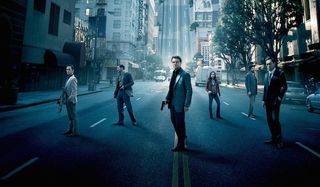
What The Movie Says
The movie, on the other hand, is much more open-ended, in general, with what it has to say to its audience about the state that Cobb is in. Not just in the final scene. That stays true to what is in the script. But as mentioned before, a lot of the dialogue between Cobb (DiCaprio) and Professor Miles (Caine) is cut down to the basics, leaving much of Nolan's intention to interpretation.
Gone, for example, are any mentions to Professor Miles' wife, who left him because of his continued friendship with Cobb. Instead, their shared scenes feel more like the set up to bring Ariadne (Ellen Page) into the plot, which Nolan needed to keep the film going at a fair clip.
One scene that is left more intact is the Chemist scene, where the old man in the basement asks Cobb if he still dreams, as well as a cryptic reference to the dream becoming reality to the old men -- as well as to Cobb, himself. We view this as a deliberate clue to Cobb's state. Not to mention, when the spinning top scene comes in at the end of the film, it's not a fade, as the script suggested. Instead, it's a very curt cut, assisted by a musical cue that's just as abrupt. That's how Nolan ends the film.
Some say that the top is still spinning at the end, while others say they see it begin to wobble at the very end of the film, but either way, the shot doesn't linger enough to support either outcome. If you want to add some further fuel to the fire, think about how quickly the music cuts off at the end. Kind of sounds like someone waking with a start, doesn't it? This could symbolize that the audience is waking up from the dream that is Inception, but it could also mean that Cobb's ready to wake up and accept the world he really lives in, if only to see his children.
OK, so, between the script, and the actual movie, what do we think happens at the very end of Inception?
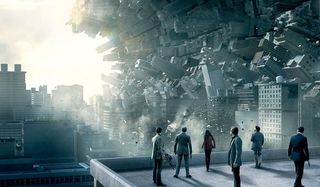
Summation/Analysis
Inception is a different beast, depending on how you're looking at it. If you're reading the shooting script, the film seems a little more concrete in its case that yes, this is a dream for Cobb (DiCaprio), and the top will keep spinning. However, watching the actual film adaptation of that very script, it seems that Christopher Nolan deliberately truncated the film in order to create a more ambiguous picture that makes you question reality as much as Leonardo DiCaprio's Cobb does.
But even with the ambiguity front and center throughout the film, there are still enough clues and structural flourishes that hint at the eventual reality that Cobb is dreaming, and the top keeps spinning. The film doesn't come out and say it, but if you piece enough clues together, you start to think that maybe Cobb did become that old man filled with regret. The dream world is his reality, and to cope with everything that happened in his reality, he retreats into this world and creates the ultimate absolution for his crimes.
Of course, the whole point of Inception the movie is the same as the procedure the film is named after. Mainly, that an idea can be planted into a person's brain, and flower according to that person's experiences, knowledge, and the clues that are planted along the way. Christopher Nolan does just that as he leads the viewer through the maze of the dream worlds the team fights their way through. As the viewer "wakes up" from the experience, the thoughts that fill their mind are all based on how they interpret everything that came in the moments they saw on the screen.
So really, there's no wrong way to look at Inception... it's just that one outcome has more evidence to support its relevance than the other. But much like the top in Inception's dream world, this argument can go spinning for eons and eons with interpretations and arguments for either side's case.
It is because of this that we suggest you read Psychology Today's excellent piece dissecting Inception, as it helps add some fuel to the fires and argues some really good points included in the film's overall fabric. Much like Cobb, you now face a choice: do you stick with the reality we've presented you, or will you go a little deeper? Either way, just make sure you don't follow the conclusion that leaves you an old reader, filled with regret, waiting for Christopher Nolan to give you his version of the truth.
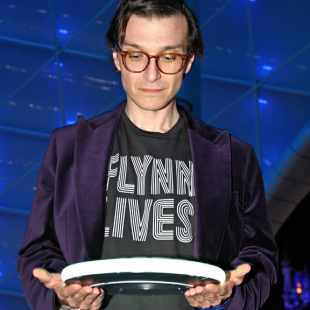
Mike Reyes is the Senior Movie Contributor at CinemaBlend, though that title’s more of a guideline really. Passionate about entertainment since grade school, the movies have always held a special place in his life, which explains his current occupation. Mike graduated from Drew University with a Bachelor’s Degree in Political Science, but swore off of running for public office a long time ago. Mike's expertise ranges from James Bond to everything Alita, making for a brilliantly eclectic resume. He fights for the user.
Most Popular





